QuickRead - Book Summaries
QuickRead AS
FREE - In Google Play
Technology & the Future
Are the robots really coming for our jobs? What will our lives look like in the future? Take a peek at these books and find out!
Sort By:
alphabetically
most recent
most popular
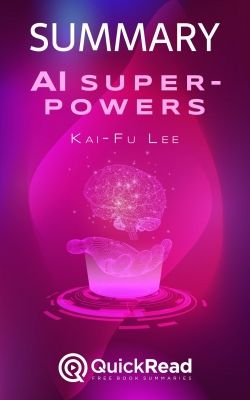
Kai-Fu Lee
Learn how China was able to catch up to the US as an AI superpower and discover the future of artificial intelligence.
As we live in a world where cars no longer need drivers, phones can be unlocked with facial recognition, and the internet can even provide advertisements based on your browsing history, it’s becoming more and more apparent that artificial intelligence (AI) is only going to get better. While the AI movement began in the United States, other countries have quickly caught up, including China who is now one of the largest AI superpowers in the world. However, the two countries continue to compete in the AI race and the two take drastically different approaches. For instance, China is determined to become the world leader and is doing whatever it takes to get there, including funneling billions of dollars into AI tech start-ups and making it as easy as possible to launch a new start-up. As Silicon Valley competes with its Chinese counterpart, Zhongguancun, Kai-Fu Lee discusses everything, including what led to China’s success, what the future of AI looks like, and how a change in values can make our world a better place.
12 minutes
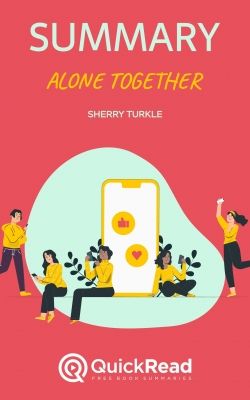
Sherry Turkle
Why We Expect More from Technology and Less from Each Other
Today, it’s easier than ever to connect with another person. Thanks to social media apps like Facebook, we have opened ourselves up to become available at all hours of the day. While this makes people stay connected virtually, our modern lives are making us less connected as we no longer connect with physical people but simulations of them. And not only is technology providing us with an endless network of people, but it is also equipping us with robots who can do more than just take on mindless or dangerous tasks. Now, robots are providing humans with care and demanding that we care for them. In Alone Together, author Sherry Turkle explores the power of these new technologies and shares both sides of today’s digital culture. As you read, you’ll learn how robots can be therapeutic for the elderly, why being constantly connected leads to stress, and why people use virtual avatars to cope with the stresses of life.
14 minutes
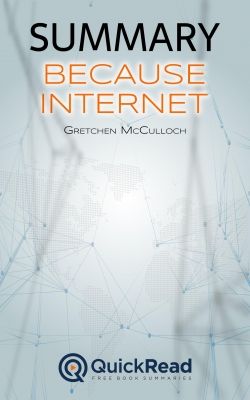
Gretchen McCulloch
Learn how the internet has changed the way we communicate and what our online interactions reveal about who we are.
Have you ever wondered how a simple punctuation mark in a text message can mean anger or passive aggression? Or how a simple “lol” can make even the rudest messages nice? Well, thanks to Gretchen McCulloch, we can now get an in-depth explanation of how the internet has changed the way we communicate online. In the past, published writing was forced to go through a series of proofreads and edits; however, nowadays our social media updates, blog posts, and even articles can be written by anyone who wishes to share information with the world. The internet has led to an increase in informal writing which is constantly changing and evolving as quickly as language itself. So if you’ve ever found yourself wondering how to punctuate a text or where a meme came from, McCulloch answers these questions and more throughout her book, Because Internet.
13 minutes
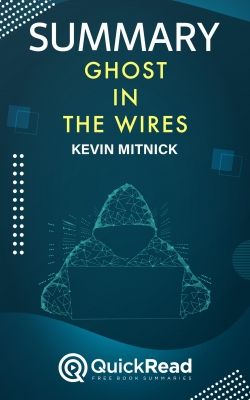
Kevin Mitnick
Inside the mind of the world’s greatest hacker.
Everyone knows computer hackers are a thing, but what do they really do? How do they get their start? And most importantly, why do they do what they do? An autobiographical thriller, Ghost in the Wires (2011) follows the journey of Kevin Mitnick, one of the world’s greatest hackers, and explores his nefarious accomplishments.
15 minutes
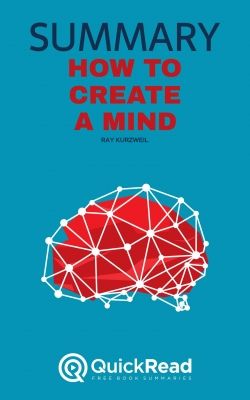
Ray Kurzweil
Breaks down the inner workings of brains, both human and artificial.
The best way to create an artificial mind is to first understand how our own minds work. How it processes information, how it recognizes patterns. Ray Kurzweil is a renowned writer focusing on futurology, and the subject of artificial intelligence is especially important to him.
In How to Create a Mind he dissects the human mind, investigating how consciousness arises from a collection of neurons and electrical signals, in the hopes that we might better understand where we came from, and where we’re going.
9 minutes
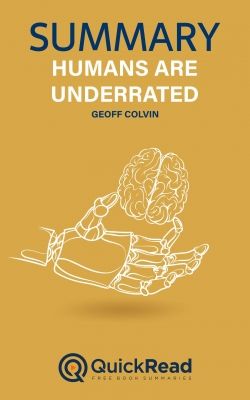
Geoff Colvin
Many of our jobs are being automated and replaced by computers, find out what skills you can develop that can’t be replaced and how technology and social media might help or hurt them!
Computers are becoming smarter than humans in almost every way. Even the one area we thought computers couldn’t touch, emotions, aren’t off limits. What can we do when computers are becoming better than humans at detecting human emotion? When they can invent recipes and write stories?
Humans Are Underrated will delve into just that, the areas where humanity still remains superior. In this summary we’ll learn about computers that recognize facial expressions, how empathy can improve business success, how social media is making us all less social, and what we can do to use technology to improve the things we are in fact underrated at.
9 minutes
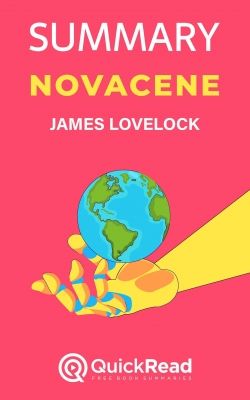
James Lovelock
Learn about the dawn of artificial intelligence.
We live in a scary and rapidly-evolving time. James Lovelock argues that this is no coincidence and that we are hurtling towards a new era, which he calls “the Novacene Age.” Characterized by severe climate change and the dawn of artificial intelligence, the Novacene Age is truly a brave new world for human beings and it heralds the onset of a future that we may not enjoy. Novacene (2019) explores Lovelock’s theory about humanity, its place in the world, and how we all might soon be replaced by machines.
14 minutes
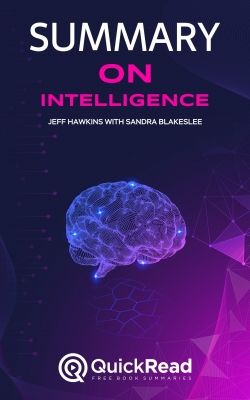
Jeff Hawkins, Sandra Blakeslee
Learn How a New Understanding of the Brain Will Lead to the Creation of Truly Intelligent Machines.
In today’s modern world, our relationship with computers has become revolutionary with the invention of artificial intelligence. Today, we can talk to our devices and, even better, they can answer. We have created a world that, in the past, was only seen in science fiction books and movies. But there is still something missing. Artificial intelligence is just that… artificial. But what if we could create computers that have real intelligence? What if we built computers that work the same way our brains do? Through On Intelligence, Hawkins presents a powerful theory of how the human brain works and explains why computers are not intelligent. According to this theory, we will finally be able to build intelligent machines. So what kind of intelligent machines can we begin to expect in the future? How will these machines change the way we live? Or interact with one another? As you read, you’ll learn how the human brain is superior to the computer, why robots will never take over the world, and what kinds of technology you might see in the future.
11 minutes

Richard Susskind, Daniel Susskind
Richard and Daniel Susskind lay out their vision of a future in which expert knowledge is shared and distributed, and the role of the specialized professional becomes antiquated.
Authors Daniel Susskind and Richard Susskind examine the professions that they predict will be eliminated in the near future, and what technologies and systems will replace them. They argue that the role of doctors, CPAs, teachers, lawyers, priests, and many others will either become obsolete or radically transformed.
11 minutes

Levi Tillemann
Learn about the race to craft the car of the future.
The Great Race (2016) is the story of the future. Written for car enthusiasts, engineers, or anyone who just loves cars, The Great Race is a historical anthology of the international drive to create the best electric car.
14 minutes
- ← Prev
- 0
- Next →